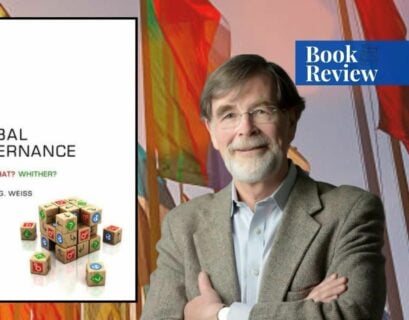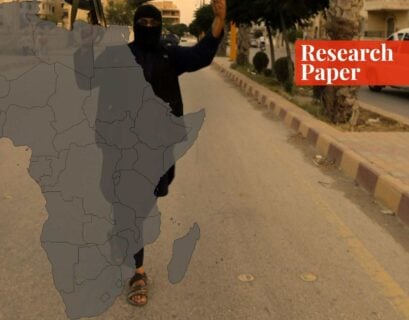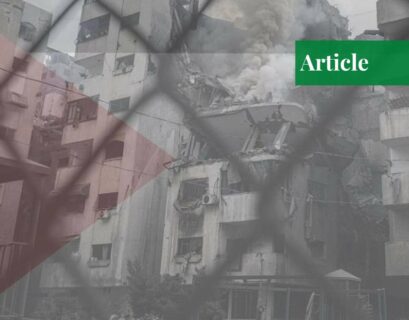Ms. Memoona Nasir is an international relations graduate from National Defense University, Islamabad. She is currently pursuing her MPhil in Peace and Conflict Studies at the Centre for International Peace and Stability (CIPS), NUST, Islamabad. As a student of peace and conflict studies, she possesses a strong passion for analyzing various peacekeeping strategies and delving into the intricate details of successful peacekeeping missions. Her coursework and research predominantly focus on international relations, geopolitics, conflict resolution, and the peacekeeping missions of the United Nations.
Introduction
The International Responsibility of International Organisations: Cooperation in Peacekeeping Operations by Moritz P. Moelle is a significant insertion of the literature on the responsibilities of international organizations while conducting their peacekeeping missions. With an increase in the complexities of conflict, the way how international organizations work, behave, and cooperate has become much more intricate than ever before. This raises the question of whether there’s any mechanism that ensures justice and transparency in the conduct of these international organizations in the context of peacekeeping missions.
In The International Responsibility of International Organisations, Moritz P. Moelle provides a comprehensive analysis of the legal framework governing the responsibility of international organizations for their actions or omissions during peacekeeping operations. The book covers various aspects of international organizations’ responsibilities, including their obligations, wrongful acts, attribution, remedies, and immunity. The main research question of this book is whether international organizations working together in peacekeeping operations can be held jointly accountable under international law for their conduct.
Regionalism & Universalism in the UN Charter
In the introductory chapters of The International Responsibility of International Organisations, Moelle identifies the general evolution of the collective security system under the UN Charter. He provides a legal framework for attributing the international organization’s accountability, particularly in peacekeeping operations, Moelle puts a great emphasis on The United Nations Charter’s Chapters VII and VIII which cover the cooperation and relationship of the United Nations with regional organizations to maintain international peace and security.
In the author’s view, the relationship between Chapter VII and Chapter VIII of the UN Charter is “a balance between regionalism and universalism.” Chapter VII of the UN Charter deals with the maintenance of international peace and security, while Chapter VIII upholds the constitutional basis for regional organizations to help in the maintenance of international peace. Therefore, he makes a compelling case that the framework provided by the UN Charter for upholding global peace and security is based on a compromise between universalism and regionalism and it accommodates both perspectives.
Moelle deliberately focuses on the comparative methodology by focusing on the five international organizations: the European Union (EU), NATO, the African Union (AU), the Economic Community of West African States (ECOWAS), and the UN. The reason for choosing these five international organizations for the comparative study is that it makes it possible to compare the legislative frameworks of these organizations, their interactions with one another, and their agreements for collaboration during peacekeeping missions. The author argues that the organizations involved in peacekeeping missions act equally, and there is no superior-subordinate relationship.
Joint Responsibility and Collective Punishment
The central premise of The International Responsibility of International Organisations is whether these organizations may be held jointly liable for any act of violation. The main research question of this book is comprehensively explained in Chapter 3, “From the Broader Legal Framework.” To elucidate his argument, he uses the 2011 International Law Commission’s Articles on Responsibility of International Organizations (ARIO). After carefully considering the grounds for attributing the act (mentioned in Article 7 of ARIO), and the responsibility mentioned in Articles 14 and 15, he settles that these regulations do not effectively highlight the contemporary cooperation arrangements among different international organizations engaged in peacekeeping processes.
The analysis of the relevant articles concludes that the concept of joint responsibility of the conduct is only covered by one organization under ARIO. So, there is a clear “responsibility gap” concerning the cases of joint responsibility. In response to this, Moelle provides his new criteria for attributing the responsibility of the conduct, in the context of peacekeeping operations, to two or more international organizations. This conduct comes under the principle of “normative control.”
Considering the understanding, Moelle defines normative control as “means having the political or institutional influence of one organization on another.“ This can include funding and logistics support, mandate planning, and providing guidance on conducting the mission. In conclusion, Moelle contends that one organization that exerts normative control over another by its political, institutional, or financial power is capable of being held concurrently responsible for the actions of a peacekeeping force.
Strengths
The International Responsibility of International Organisations considers the United Nations, as well as regional organizations like the European and African Union, to support his arguments. Moelle also assesses the various kinds of obligations that these organizations might have, such as moral, political, and legal. He explains legal ideas in simple terms and uses several examples and case studies, such as peacekeeping operations in Kosovo, Darfur, and South Sudan, to support his claims. He posits a strong argument through these case studies. He asserts that the current study trend shows that regional organizations consider themselves to be bound by the provisions of the UN Charter-based on customary law and this affects the attribution of the conduct on a variety of levels.
Moelle also delves into the practical aspects of implementing international responsibility, including the means of settling disputes and the remedies available for breaches of international responsibility and the applicable law. His analysis focuses on how international norms are used by the UN and regional organizations when peacekeeping missions are deployed.
In assessing the accountability of international organizations, he looks at international judicial bodies’ functions, the International Court of Justice, and the International Tribunal for the Law of Sea. Moelle investigates the numerous legal frameworks, such as the ARIO, customary international law, and basic legal principles, that govern the accountability of international organizations. He also analyses the different forms of responsibility, including primary, secondary, and shared responsibility.
Moelle’s analysis shows that the legal framework applicable to peacekeeping operations is quite complex in nature. There are questions and debates regarding how international organizations should use their legal power and which body of humanitarian law should apply to the conflicts governing peacekeeping operations. Concerning this, there is an ongoing argument between International Humanitarian Law and International Human Rights Law. To add to the chaos, intense research is underway to determine the feasibility of creating a global human rights tribunal with the power to scrutinize the conduct of peacekeeping operations.
In addition to his normative control theory, Moelle provides some recommendations to deal with the relationship between The UN and regional organizations for a better understanding of the complexity of the situation. He also proposes a ‘’Standard Model Agreement’’ so that all the organizations involved in peacekeeping missions are aware of the rules applicable to them.
Drawback
The book’s failure to consider stakeholders outside of the legal community is one of its flaws. While Moelle briefly mentions civil society and affected communities’ roles in holding international organizations responsible, there is little exploration of their opinions and experiences. This is a squandered opportunity, as a more thorough examination of the role of stakeholders would have provided a more nuanced understanding of the difficulties that international organizations have in carrying out their tasks.
Despite some deficiencies, Moritz P. Moelle’s book is an important contribution to the literature on the international responsibility of international organizations. This book is a valuable resource for both legal scholars and practitioners because of the author’s clear and comprehensive explanation of the legal framework governing these organizations’ responsibilities as well as the challenges they face in carrying out their activities.
If you want to submit your articles, research papers, and book reviews, please check the Submissions page.
The views and opinions expressed in this article/paper are the author’s own and do not necessarily reflect the editorial position of Paradigm Shift.



















